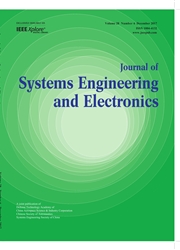

 中文摘要:
中文摘要:
A robust fault diagnosis approach is developed by incorporating a set-membership identification (SMI) method. A class of systems with linear models in the form of fault related parameters is investigated, with model uncertainties and parameter variations taken into account explicitly and treated as bounded errors. An ellipsoid bounding set-membership identification algorithm is proposed to propagate bounded uncertainties rigorously and the guaranteed feasible set of faults parameters enveloping true parameter values is given. Faults arised from abrupt parameter variations can be detected and isolated on-line by consistency check between predicted and observed parameter sets obtained in the identification procedure. The proposed approach provides the improved robustness with its ability to distinguish real faults from model uncertainties, which comes with the inherent guaranteed robustness of the set-membership framework. Efforts are also made in this work to balance between conservativeness and computation complexity of the overall algorithm. Simulation results for the mobile robot with several slipping faults scenarios demonstrate the correctness of the proposed approach for faults detection and isolation (FDI).
 英文摘要:
英文摘要:
A robust fault diagnosis approach is developed by incorporating a set-membership identification (SMI) method. A class of systems with linear models in the form of fault related parameters is investigated, with model uncertainties and parameter variations taken into account explicitly and treated as bounded errors. An ellipsoid bounding set-membership identification algorithm is proposed to propagate bounded uncertainties rigorously and the guaranteed feasible set of faults parameters enveloping true parameter values is given. Faults arised from abrupt parameter variations can be detected and isolated on-line by consistency check between predicted and observed parameter sets obtained in the identification procedure. The proposed approach provides the improved robustness with its ability to distinguish real faults from model uncertainties, which comes with the inherent guaranteed robustness of the set-membership framework. Efforts are also made in this work to balance between conservativeness and computation complexity of the overall algorithm. Simulation results for the mobile robot with several slipping faults scenarios demonstrate the correctness of the proposed approach for faults detection and isolation (FDI).
 同期刊论文项目
同期刊论文项目
 同项目期刊论文
同项目期刊论文
 期刊信息
期刊信息
